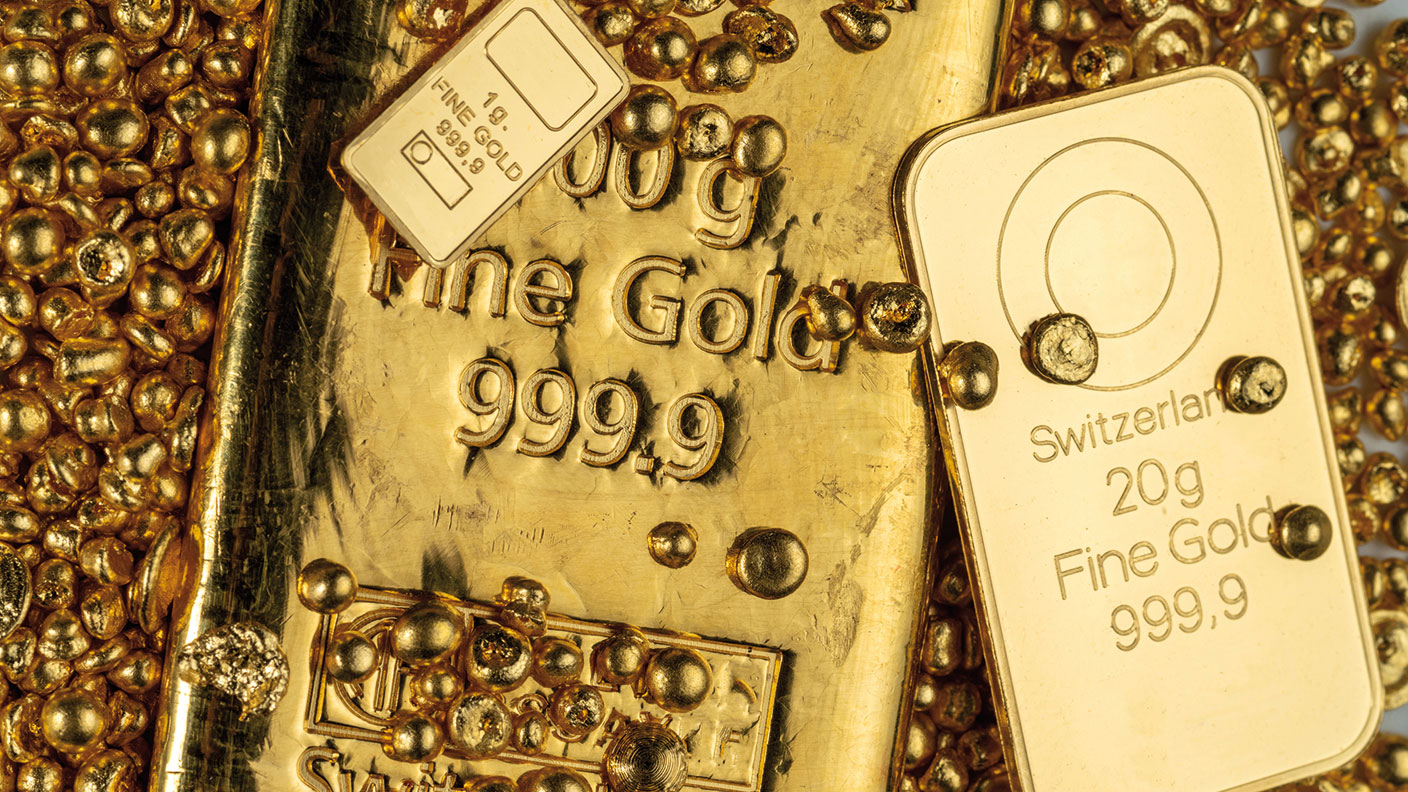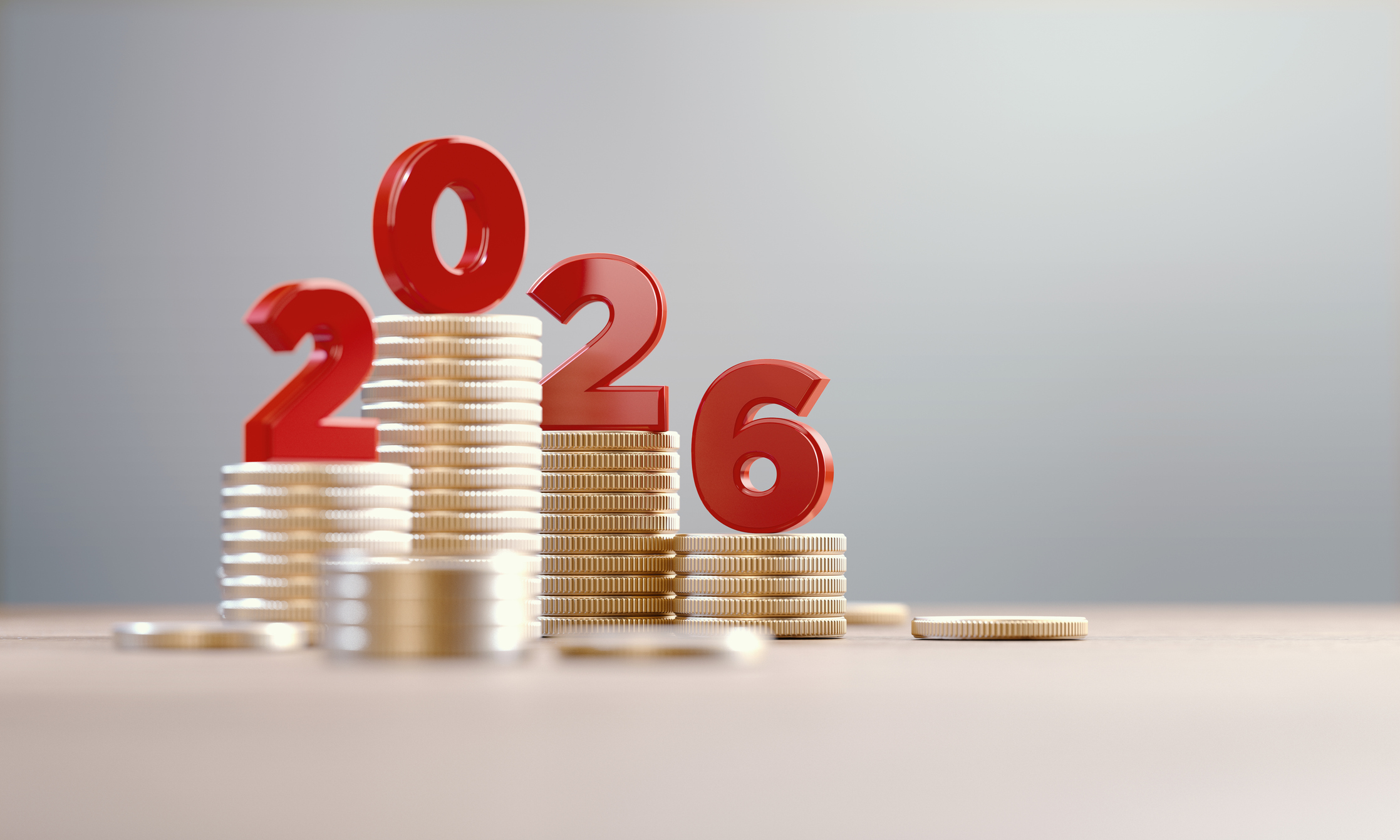Making money is about to get much harder
Soaring inflation, geopolitical risk, bubbly stockmarkets - getting a return on your investment is going to get much more difficult – but not impossible, says Merryn Somerset Webb.


Get the latest financial news, insights and expert analysis from our award-winning MoneyWeek team, to help you understand what really matters when it comes to your finances.
You are now subscribed
Your newsletter sign-up was successful
Want to add more newsletters?
I’ve had a letter from my auto-enrolment pension provider, Aviva. It tells me that my pension is worth £19,574.25. That’s nice (I have savings with other providers). But it almost immediately gets less nice. Aviva also tells me that “at retirement” my pension “could be worth £18,800.” I read that a few times to make sure I had not misunderstood. I had not: Aviva reckons that by the time I am 65, it will have lost me £600.
This is where it gets interesting. On page six of the confusing documentation, Aviva adds a little meat to the bones of all this. It turns out that £18,800 is not the nominal amount of money it expects me to have in 15 years’ time. It is the “real” amount. Aviva has “made an allowance for future inflation” to give me an idea of how much I may be able to buy with the income from the £18,800 (£42 a month should you be interested…) if I received it today.
This isn’t a bad way to do it. But it does come with two problems: almost no one will read to page six; and Aviva, one of the UK’s largest money managers, does not trust itself to be capable of investing my money so as to preserve my purchasing power over the long term (I think we can all agree that in stockmarket terms 15 years is the long term). I mentioned last week that this is no time for financial passivity. I think this rather proves the point. I’m going to have to move.
Try 6 free issues of MoneyWeek today
Get unparalleled financial insight, analysis and expert opinion you can profit from.

Sign up to Money Morning
Don't miss the latest investment and personal finances news, market analysis, plus money-saving tips with our free twice-daily newsletter
Don't miss the latest investment and personal finances news, market analysis, plus money-saving tips with our free twice-daily newsletter
All that said, it won’t be as easy to make money over the next 15 years as it has over the last 15. In this week's magazine, John looks at investing guru Jeremy Grantham’s ideas on this (listen to Grantham discuss them on the MoneyWeek Podcast. He is sure that the US at least is in what he calls a “super bubble” – one that, thanks to soaring inflation (our cover story this week explains part of the reason why); the high risk that this will lead to a wage/price spiral (workers demand higher wages to compensate for rising prices, which drives prices even higher); the return of geopolitical risk; and the recognition that while a fun growth story is nice, cash is nicer; is now starting to burst. This week almost every big fund management firm announced it is time to buy the dip. If Grantham is right, it is not – in the US at least.
Insuring against all this is tough (perhaps Aviva is just rather more honest than other professional investors). But it isn’t necessarily impossible. Goldman Sachs suggested this week that we buy gold again, as a hedge against “bad inflation.” Most MoneyWeek readers will, I think, have some gold as a hedge. It hasn’t covered itself in glory so far this cycle, but it is still the one asset we have easy access to with a multi-millennia record of protecting against inflation. So it is worth holding.
Silver might be too (for more, listen to this week’s podcast with Julian Brigden). We’d say the same for profitable companies with good records of paying rising dividends. The latest Link Dividend Monitor reports that UK payouts rose by 46.1% last year, led by a surge in special dividends from miners. Link is not convinced this will continue, but given the supply and demand dynamics in many commodity markets, we wouldn’t be so sure. The same goes for oil companies: with oil at a seven-year high they should soon be rolling around in cash, some of which will end up in shareholders’ pockets. Buy good companies at the right price today, and it seems unlikely you will be out of pocket in 15 years.
Get the latest financial news, insights and expert analysis from our award-winning MoneyWeek team, to help you understand what really matters when it comes to your finances.

-
 What do rising oil prices mean for you?
What do rising oil prices mean for you?As conflict in the Middle East sparks an increase in the price of oil, will you see petrol and energy bills go up?
-
 Rachel Reeves's Spring Statement – live analysis and commentary
Rachel Reeves's Spring Statement – live analysis and commentaryChancellor Rachel Reeves will deliver her Spring Statement on 3 March. What can we expect in the speech?
-
 Hints of a private credit crisis rattle investors
Hints of a private credit crisis rattle investorsThere are similarities to 2007 in private credit. Investors shouldn’t panic, but they should be alert to the possibility of a crash.
-
 How a dovish Federal Reserve could affect you
How a dovish Federal Reserve could affect youTrump’s pick for the US Federal Reserve is not so much of a yes-man as his rival, but interest rates will still come down quickly, says Cris Sholto Heaton
-
 Why it might be time to switch your pension strategy
Why it might be time to switch your pension strategyYour pension strategy may need tweaking – with many pension experts now arguing that 75 should be the pivotal age in your retirement planning.
-
 Star fund managers – an investing style that’s out of fashion
Star fund managers – an investing style that’s out of fashionStar fund managers such as Terry Smith and Nick Train are at the mercy of wider market trends, says Cris Sholto Heaton
-
 How to add cryptocurrency to your portfolio
How to add cryptocurrency to your portfolioA new listing shows how bitcoin might add value to a portfolio if cryptocurrency keeps gaining acceptance, says Cris Sholto Heaton
-
 Investing in forestry: a tax-efficient way to grow your wealth
Investing in forestry: a tax-efficient way to grow your wealthRecord sums are pouring into forestry funds. It makes sense to join the rush, says David Prosser
-
 The MoneyWeek investment trust portfolio – early 2026 update
The MoneyWeek investment trust portfolio – early 2026 updateThe MoneyWeek investment trust portfolio had a solid year in 2025. Scottish Mortgage and Law Debenture were the star performers, with very different strategies
-
 Pundits had a bad 2025 – here's what it means for investors
Pundits had a bad 2025 – here's what it means for investorsThe pundits came in for many shocks in 2025, says Max King. Here is what they should learn from them